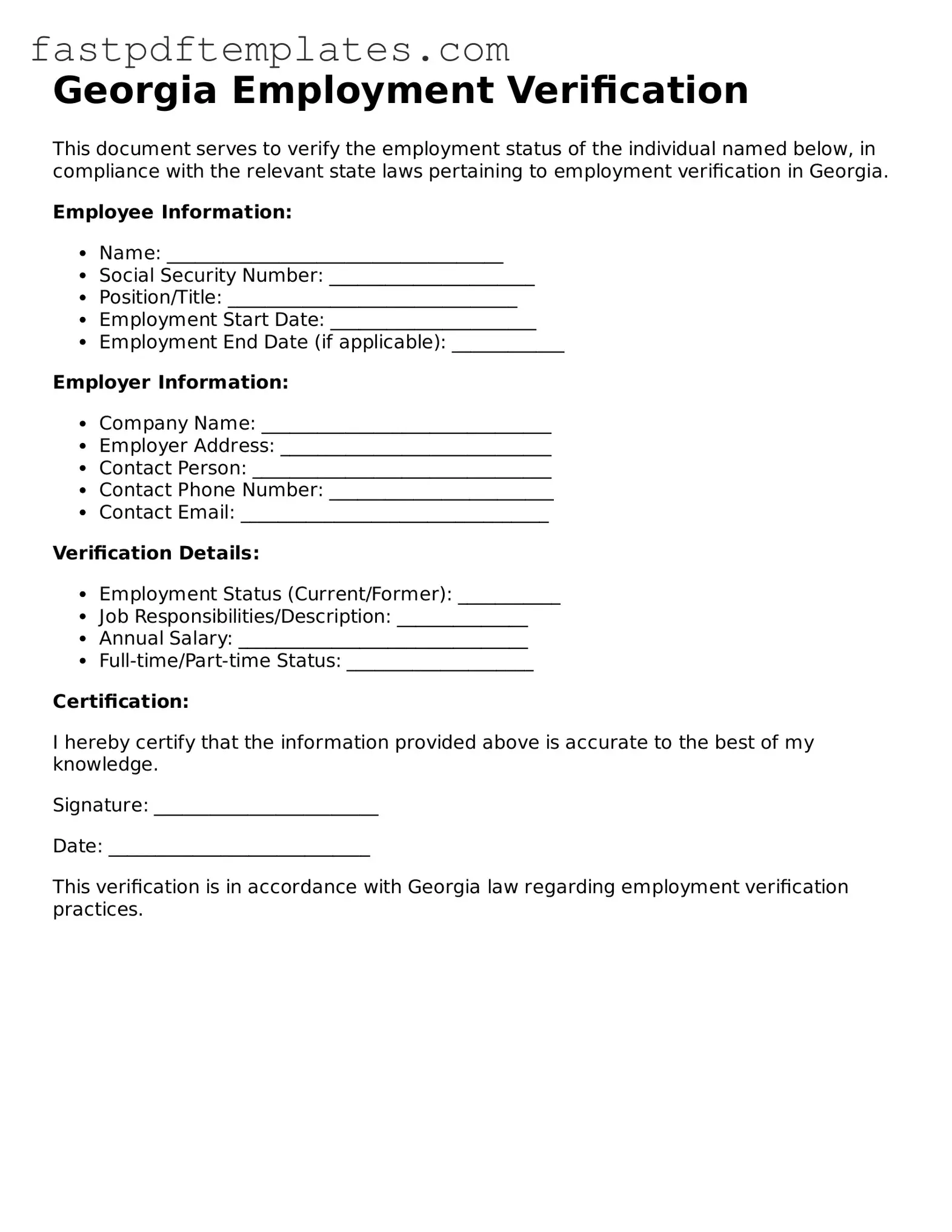The I-9 form, used by employers across the United States, serves a similar purpose to the Georgia Employment Verification form. This document verifies an employee's identity and eligibility to work in the U.S. Just like the Georgia form, the I-9 requires personal information, such as the employee's name and address, and must be completed by both the employer and the employee. The I-9 is crucial for ensuring compliance with federal immigration laws, making it a key document in the hiring process.
The W-2 form is another important document in the employment landscape. While it primarily focuses on reporting an employee's annual wages and taxes withheld, it also reflects the employer-employee relationship. Similar to the Georgia Employment Verification form, the W-2 is essential for tax purposes and helps confirm employment status. Employers must provide this form to their employees by January 31st each year, ensuring that individuals can accurately report their income to the IRS.
The 1099 form, often used for independent contractors, shares similarities with the Georgia Employment Verification form in terms of employment status verification. This document reports income earned by freelancers and self-employed individuals. Like the Georgia form, the 1099 serves as proof of work and income, but it is specifically tailored for those who are not traditional employees. This distinction is important for tax reporting and understanding the nature of the working relationship.
The Social Security Administration (SSA) letter is also relevant in this context. When an employee applies for a job, they may need to provide a letter from the SSA to verify their Social Security number. This document, like the Georgia Employment Verification form, is essential for confirming identity and eligibility for employment. Employers often require this letter to ensure that all tax and employment records are accurate and compliant with federal regulations.
The State Unemployment Insurance (UI) form is another important document that shares common ground with the Georgia Employment Verification form. This form is used to determine an individual's eligibility for unemployment benefits. While the Georgia form focuses on verifying current employment status, the UI form assesses past employment history and earnings. Both documents play a role in ensuring that individuals receive the appropriate benefits and support during periods of unemployment.
The background check authorization form is also similar in purpose to the Georgia Employment Verification form. This document allows employers to conduct background checks on potential employees. It requires the candidate's consent and typically includes personal information. Like the Georgia form, it helps employers verify the qualifications and suitability of a candidate for a position, ensuring a safe and qualified workforce.
Finally, the job application form itself is another document that parallels the Georgia Employment Verification form. This form collects essential information about the applicant, such as work history, education, and references. Like the Georgia form, the job application is a critical step in the hiring process, helping employers assess a candidate's qualifications and verify their employment history. Both documents contribute to a comprehensive understanding of an applicant's background and suitability for a role.

